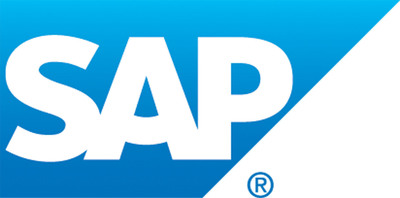

LAS VEGAS, Aug. 30, 2017 /PRNewswire/ -- According to new survey results released by SAP SE (NYSE: SAP), business leaders who have completed digital transformation projects across their entire organization report significant increases in employee engagement compared to those with more limited initiatives. Sixty-four percent of executives with broad-ranging digital initiatives say their employees are more engaged, compared with 20 percent among organizations that have completed transformation projects in single business areas. Successful transformation depends on people, highlighting the importance of workforce investments in driving digital business performance. The announcement was made at the SuccessConnect® event taking place in Las Vegas Aug. 29–31 at The Cosmopolitan of Las Vegas.

"4 Ways Leaders Set Themselves Apart," a digital transformation executive study by the SAP® Center for Business Insight group and Oxford Economics, surveyed over 3,100 global business decision makers to examine the priorities driving digital transformation projects. The results show stark differences between organizations that have completed transformation projects and those that have yet to adopt digital strategies:
"Today's leading businesses are putting their employees at the heart of their digital transformation strategies," said Greg Tomb, president, SAP SuccessFactors*. "This research shows successful digitalization depends on people, with the most innovative and forward-looking companies committed to investing in their workforce to ensure they are properly equipped to meet the challenges of tomorrow."
Other key findings from the report include:
The study shows that a commitment to digital transformation pays off. Compared to other companies surveyed, digital leaders have stronger revenue growth and profitability today – and expect that advantage to continue over the next two years. In fact, digital leaders expect 23 percent higher revenue growth than all others in the next two years, and 80 percent of leaders say transformation efforts have increased profitability versus 53 percent of all others.
"Digital transformation is about more than investing in the latest technology," says Edward Cone, technology practice lead, Oxford Economics. "People matter most – how they work, what they know, which skills they need in a changing workplace. Most companies have only begun to address these human factors, and those that fall behind may never catch up."
HR professionals around the globe can join key sessions virtually at this year's SuccessConnect in Las Vegas by registering at https://vshow.on24.com/vshow/Success/registration/14536.
For more information, visit the SAP SuccessFactors Web site or SAP News Center. Follow SAP SuccessFactors® solutions on Twitter at @SuccessFactors and SAP at @sapnews.
*SAP SuccessFactors is a new brand name launched in January 2016 and is used here to mean the offerings, employees, and business of acquired company SuccessFactors, which continues to be our legal entity until integration with SAP is complete.
About SAP
As market leader in enterprise application software, SAP (NYSE: SAP) helps companies of all sizes and industries run better. From back office to boardroom, warehouse to storefront, desktop to mobile device – SAP empowers people and organizations to work together more efficiently and use business insight more effectively to stay ahead of the competition. SAP applications and services enable more than 355,000 business and public sector customers to operate profitably, adapt continuously, and grow sustainably. For more information, visit www.sap.com.
Any statements contained in this document that are not historical facts are forward-looking statements as defined in the U.S. Private Securities Litigation Reform Act of 1995. Words such as "anticipate," "believe," "estimate," "expect," "forecast," "intend," "may," "plan," "project," "predict," "should" and "will" and similar expressions as they relate to SAP are intended to identify such forward-looking statements. SAP undertakes no obligation to publicly update or revise any forward-looking statements. All forward-looking statements are subject to various risks and uncertainties that could cause actual results to differ materially from expectations. The factors that could affect SAP's future financial results are discussed more fully in SAP's filings with the U.S. Securities and Exchange Commission ("SEC"), including SAP's most recent Annual Report on Form 20-F filed with the SEC. Readers are cautioned not to place undue reliance on these forward-looking statements, which speak only as of their dates.
© 2017 SAP SE. All rights reserved.
SAP and other SAP products and services mentioned herein as well as their respective logos are trademarks or registered trademarks of SAP SE in Germany and other countries. Please see http://www.sap.com/corporate-en/legal/copyright/index.epx#trademark for additional trademark information and notices.
For customers interested in learning more about SAP products:
Global Customer Center: +49 180 534-34-24
United States Only: 1 (800) 872-1SAP (1-800-872-1727)
For more information, press only:
Geraldine Lim, SAP, +1 (415) 418-0945, geraldine.lim@sap.com, PDT
SAP News Center press room; press@sap.com
Tim Scarfe, LEWIS Communications, +1 (510) 399-9032, tim.scarfe@teamlewis.com, PDT
SOURCE SAP SE